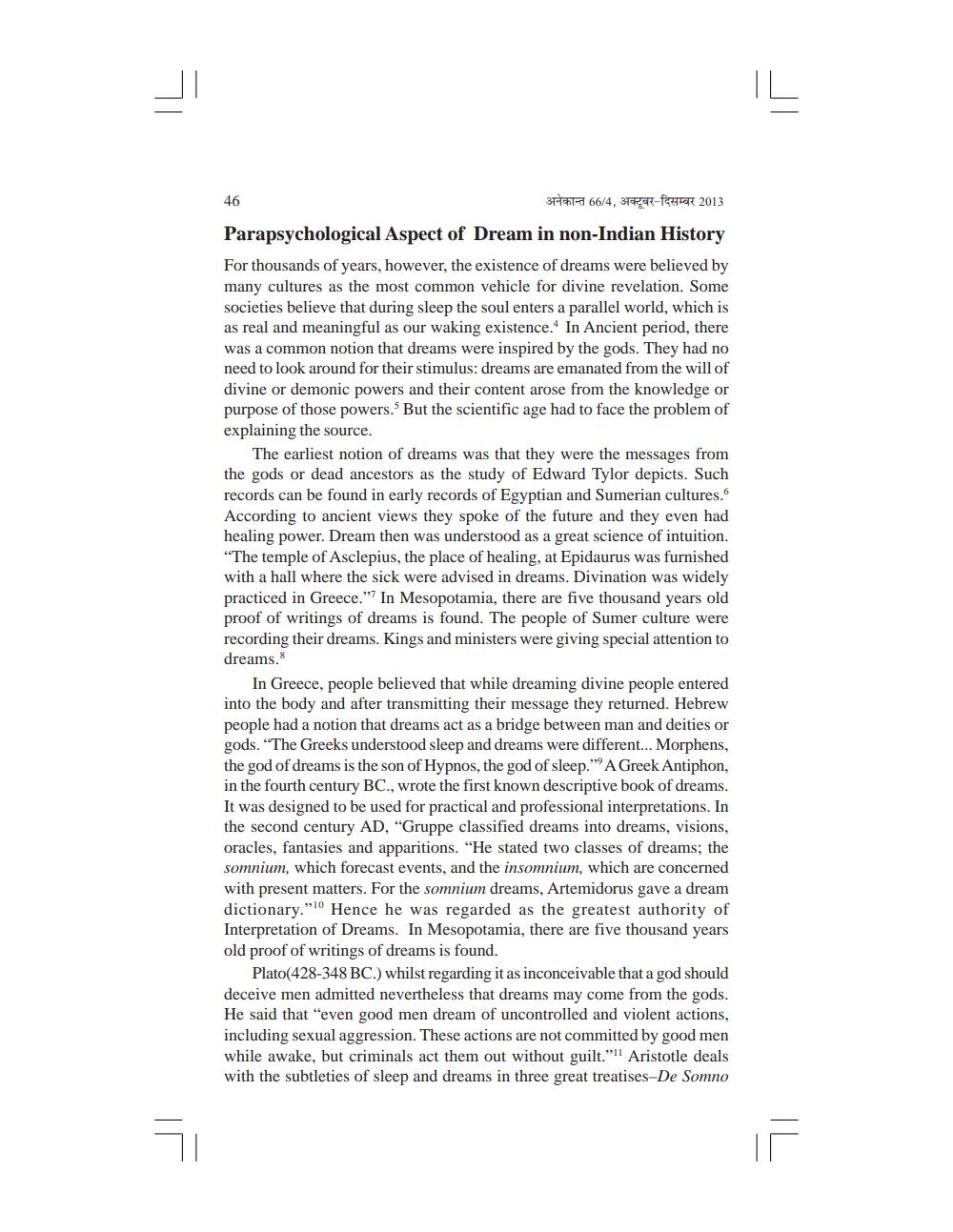________________
31466/4, Tac-fouka 2013
Parapsychological Aspect of Dream in non-Indian History For thousands of years, however, the existence of dreams were believed by many cultures as the most common vehicle for divine revelation. Some societies believe that during sleep the soul enters a parallel world, which is as real and meaningful as our waking existence. In Ancient period, there was a common notion that dreams were inspired by the gods. They had no need to look around for their stimulus: dreams are emanated from the will of divine or demonic powers and their content arose from the knowledge or purpose of those powers. But the scientific age had to face the problem of explaining the source.
The earliest notion of dreams was that they were the messages from the gods or dead ancestors as the study of Edward Tylor depicts. Such records can be found in early records of Egyptian and Sumerian cultures. According to ancient views they spoke of the future and they even had healing power. Dream then was understood as a great science of intuition. "The temple of Asclepius, the place of healing, at Epidaurus was furnished with a hall where the sick were advised in dreams. Divination was widely practiced in Greece." In Mesopotamia, there are five thousand years old proof of writings of dreams is found. The people of Sumer culture were recording their dreams. Kings and ministers were giving special attention to dreams.
In Greece, people believed that while dreaming divine people entered into the body and after transmitting their message they returned. Hebrew people had a notion that dreams act as a bridge between man and deities or gods. "The Greeks understood sleep and dreams were different... Morphens, the god of dreams is the son of Hypnos, the god of sleep." A Greek Antiphon, in the fourth century BC., wrote the first known descriptive book of dreams. It was designed to be used for practical and professional interpretations. In the second century AD, “Gruppe classified dreams into dreams, visions, oracles, fantasies and apparitions. "He stated two classes of dreams; the somnium, which forecast events, and the insomnium, which are concerned with present matters. For the somnium dreams, Artemidorus gave a dream dictionary."10 Hence he was regarded as the greatest authority of Interpretation of Dreams. In Mesopotamia, there are five thousand years old proof of writings of dreams is found.
Plato(428-348 BC.) whilst regarding it as inconceivable that a god should deceive men admitted nevertheless that dreams may come from the gods. He said that "even good men dream of uncontrolled and violent actions, including sexual aggression. These actions are not committed by good men while awake, but criminals act them out without guilt." Aristotle deals with the subtleties of sleep and dreams in three great treatises-De Somno




